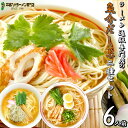I experimented to see what happens when almost all the fat and oil are removed from ramen soup.

I thought it would lose its greasiness and become easier to eat, but the result was completely different. Perhaps because the oil's effect of enveloping the saltiness was lost, despite the same level of saltiness, the sharpness of the salt remained, making it quite salty and hard to eat. I felt that fat or oil is indeed essential for ramen. If you really want to remove it, you'll need to be inventive, such as adjusting the saltiness or sweetness of the soup.
Speaking of which, I remembered a conversation from a long time ago when a knowledgeable acquaintance mentioned that non-oil dressings, since they don't contain oil, must add various seasonings to compensate for the flavor, and as a result, they are not necessarily healthier than dressings with oil. I don't know if that's true, but this experiment convinced me of the utility of oil.
無添加 ベジタリアン醤油ラーメン100g×5個★麺は国内産契約栽培小麦粉を使用、植物油で揚げています。動物性原材料不使用。
ラーメン (Ramen): A Japanese dish of noodles served in a meat or fish-based broth, often flavored with soy sauce or miso.
スープ (Soup): The broth or liquid part of a dish, often made by boiling meat, fish, or vegetables.
脂 (Fat): A natural oily substance occurring in animal bodies, used in cooking.
油 (Oil): Any of various thick, viscous liquids used in cooking.
取り除く (Remove): To take something away or off.
実験 (Experiment): A scientific procedure undertaken to make a discovery or test a hypothesis.
油っぽさ (Greasiness): The quality of being oily or covered in oil.
食べやすく (Easier to Eat): More convenient or comfortable to consume.
結果 (Result): The outcome or consequence of an action or situation.
塩分 (Saltiness): The quality of containing salt or being salty.
包み込む (Envelop): To enclose or surround something completely.
塩加減 (Level of Saltiness): The amount of salt used in a dish.
とげとげしさ (Sharpness): The quality of being sharp or intense, often used to describe flavors.
塩辛く (Salty): Having a strong taste of salt.
食べづらい (Hard to Eat): Difficult or uncomfortable to consume.
必須 (Essential): Absolutely necessary or required.
感じた (Felt): To perceive or experience a sensation or emotion.
取り除きたい (Want to Remove): The desire to take something away or off.
調整 (Adjust): To change something slightly to make it more suitable.
甘さ (Sweetness): The quality of being sweet or containing sugar.
工夫 (Inventive): The act of devising or contriving something.
ノンオイルドレッシング (Non-Oil Dressing): A type of salad dressing made without oil.
料理 (Cooking): The practice or skill of preparing food.
知人 (Acquaintance): A person one knows slightly, but who is not a close friend.
調味料 (Seasoning): A substance used to add flavor to food.
健康 (Health): The state of being free from illness or injury.
良い (Good): Having the qualities required for a particular role or function.
内容 (Content): The subject matter or topics contained in something.
事実 (Fact): A thing that is known to be true.
効用 (Utility): The state of being useful or beneficial.


